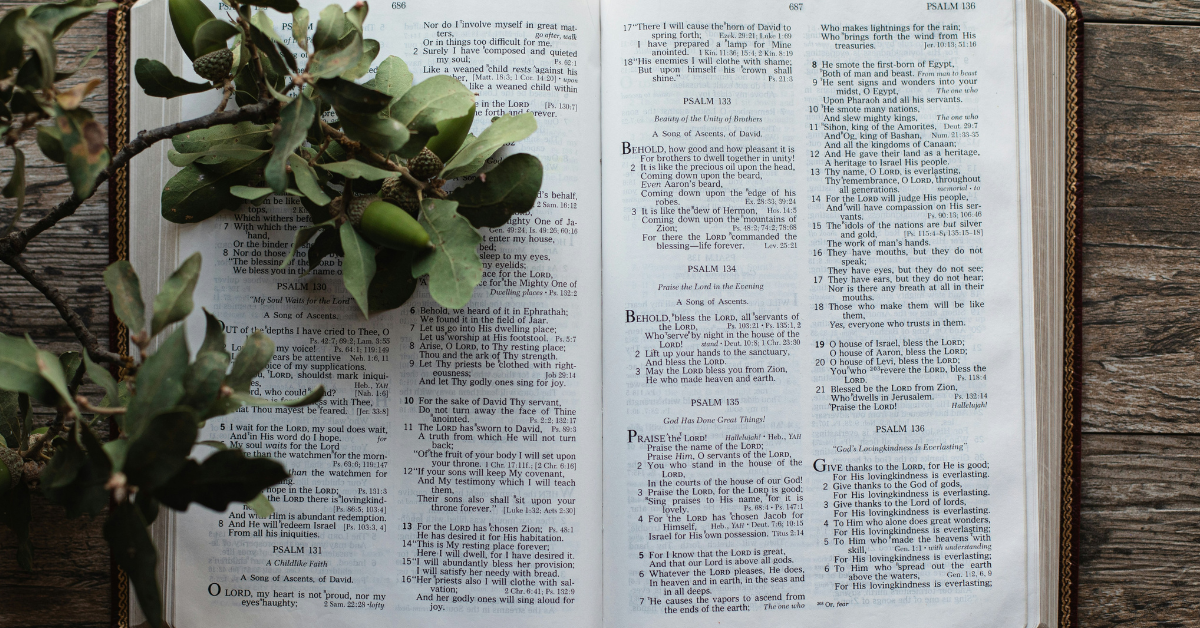Share Post – Follow Me
Should we still practice Sabbath rest? Or was the command for Sabbath rest fulfilled with Christ’s death and resurrection? Learn more about how you can practice Sabbath rest today and the biblical implications for continuing a practice of Sabbath rest.
Podcast Transcript:
Intro
Hi friend, I’m Brigette Henry. And you’re listening to the one Spiritual Journey podcast where I share stories from my spiritual journey and teach you how to walk closer with God on your spiritual journey. I’m so glad you’re here because that means you want a deeper relationship with God. In Colossians 1:28, Paul says,
“We proclaim Him warning and teaching everyone with all wisdom, so that we may present everyone mature in Christ.”
And that’s my goal for this ministry: to help present you mature in Christ. So, grab your coffee, or your tea if you’re a tea addict like me, and let’s dive into today’s topic.
Entering Sabbath Rest
So I have been on a bit of a Sabbath journey for the last six months. I’ve been slowly implementing the practice of Sabbath. So, what that looks like is not scheduling things on Sunday and not doing housework on Sunday. Which requires a lot of preparation because I do all the meals. We eat at home a lot. All of the clothing and the dishes, I have to make sure everything’s ready for Sunday and Monday ahead of time. It also looks like spending extra time with God on Sunday and preparing my heart for Sabbath the night before on Saturday night.
Now, very few Christian traditions still practice the concept of Sabbath. We still attend church, but that’s a far cry from what Sabbath practice used to look like. 00:01:26 Speaker 1
But I’m starting to wonder if there is actually a moral imperative to practice Sabbath. And that question aside, the three questions I want to answer today are: What is the Sabbath? Why don’t we practice Sabbath rest? And why should we practice Sabbath rest?
What is the Sabbath?
So what is the Sabbath? The Sabbath is a day of rest for God’s people. In John Mark Comer’s, “The Ruthless Elimination of Hurry, he explains that the word “Sabbath” comes from the word “Shabbat”. It’s a Hebrew word which literally means to “cease”, “desist” or “rest”.
God established the Sabbath in Genesis 2:1-3. It says,
“So the heavens and the earth and everything in them were completed. On the seventh day God had completed his work that he had done, and he rested on the seventh day from all his work that he had done. God blessed the seventh day and declared it holy, for on it he rested from all his work of creation.”
So, the question here is why did God rest? He does not need to rest Isaiah 40:28 says He, “never becomes faint or weary.”
The Sabbath is Holy
God rested to establish the day as holy, literally, to set it apart as sacred. In Exodus 20:8-11, when God gives Moses the 10 commandments, He says,
“Remember the Sabbath day, to keep it holy: You are to labor six days and do all your work, but the seventh day is a Sabbath to the Lord your God. You must not do any work—you, your son or daughter, your male or female servant, your livestock, or the resident alien who is within your city gates. For the Lord made the heavens and the earth, the sea, and everything in them in six days; then he rested on the seventh day. Therefore the Lord blessed the Sabbath day and declared it holy.”
God established the 7th day as holy, and he told the Israelites to practice Sabbath rest. And he gave them rules to help them do that. Now the main rule that God gave them in Exodus 20:10 was “do not work”. And in Exodus 35:2, He reiterates this by telling them that anyone who does work on the Sabbath must be executed.
Old Testament Rules for the Sabbath
There’s a lot of examples in the Old Testament of how the Israelites carried this out, and how God continued to give them instructions on how not to work on the Sabbath. He told them not to prepare food in Exodus 16:23-30. He told them not to kindle a fire in Exodus 35:3. Not to plow or harvest in Exodus 34:21.
In Nehemiah 13:15-22, Nehemiah gets angry with the Israelites because he sees some of them treading wine presses and selling food on the Sabbath. And in Numbers 15:32-36, God had a man stoned because he collected sticks on the Sabbath.
God Sanctifies Us
Now why would God be so strict about this? It’s because He had declared the Sabbath day holy. So disobeying his command not to work on the Sabbath was profaning God. In Exodus 31:13-17, He says,
“Tell the Israelites: You must observe my Sabbaths, for it is a sign between me and you throughout your generations, so that you will know that I am the Lord who consecrates you.
(Consecrates is like, sanctifies, or to make holy, to set apart. He says, “I am the Lord who sanctifies you. Who sets you apart.”)
Observe the Sabbath, for it is holy to you. Whoever profanes it must be put to death. If anyone does work on it, that person must be cut off from his people. Work may be done for six days, but on the seventh day there must be a Sabbath of complete rest, holy to the Lord. Anyone who does work on the Sabbath day must be put to death. The Israelites must observe the Sabbath, celebrating it throughout their generations as a permanent covenant. It is a sign forever between me and the Israelites, for in six days the Lord made the heavens and the earth, but on the seventh day he rested and was refreshed.”
Why Don’t We Practice Sabbath Rest?
So, we see that in the Old Testament, the Sabbath was treated very seriously as a day of rest given by God. Which brings me to my second question: why don’t we practice Sabbath rest?
You will have noticed in the passage that I just read that God mentioned celebrating the Sabbath throughout the Israelite generations as a permanent covenant. So that begs the question, why don’t we practice Sabbath?
In Colossians 2:16-17, Paul tells the church at Colosse,
“Therefore, don’t let anyone judge you in regard to food and drink or in the matter of a festival or a new moon or a Sabbath day. These are a shadow of what was to come; the substance is Christ.”
Legalism in the Early Church
What is Paul talking about here? So, the Jewish believers were pressuring the Gentile believers to follow the law of Moses. That meant that they were pressuring them to become circumcised. They were pressuring them to follow the previous laws for what meats they were allowed to eat. To honor all of their feasts and festivals like the Feast of Unleavened Bread and the Festival of Harvest.
In Matthew 5:17, though, Jesus told his followers,
“don’t think that I came to abolish the law or the Prophet. I did not come to abolish, but to fulfill.”
Essentially, Christ fulfilled the law. Therefore, a lot of these laws about the clothing that we wear being only one material, and what meats we are allowed to eat, we no longer have to follow. Because Jesus fulfilled those laws.
The Sabbath Remained
Now Paul is not saying in this passage, though, that the church at Colossae should do away with Sabbath completely. History tells us that the Jews practiced the Sabbath on Saturday and the Gentiles and some of the new believers who were Jews practiced Sabbath on Sunday.
What is happening in this passage is that Paul is battling the legalism of this situation. He’s explaining that it’s not about the rules, it’s about Christ.
You see, the Gentiles and some of the Jewish believers practice Sabbath on Sunday because that’s the day that Christ rose from the dead. And so, to them it was a way of setting themselves apart from the legalistic Jews who only believed in the Old Testament. But some of the Jewish believers thought that it was wrong, that they would celebrate Sabbath on Sunday, instead of Saturday.
And so, Paul says, “don’t let anyone judge you in regard to food and drink or in the matter of a festival or a new moon or a Sabbath day. These are a shadow of what was to come. The substance is Christ.” And now that we have Christ, we can live differently.
God’s Purpose for the Sabbath
In the Enduring Word Commentary on this passage in Colossians there is a quote by G Campbell Morgan. It’s either from his “Exposition of the Whole Bible” or from “Searchlights From the Word”. I’m not sure which one. But he says,
“any application of the Sabbath law which operates to the detriment of man, is out of harmony with God’s purpose.”
We actually see this all through the Old Testament. In Hosea 6:6, which I talked about in the last week’s podcast, it says
“For I desire faithful love and not sacrifice,
the knowledge of God rather than burnt offerings.”
In Isaiah 58:6-7, God says,
“Isn’t this the fast I choose: To break the chains of wickedness, to untie the ropes of the yoke, to set the oppressed free, and to tear off every yoke?
Is it not to share your bread with the hungry, to bring the poor and homeless into your house, to clothe the naked when you see him, and not to ignore your own flesh and blood?”
In Psalm 51:17, David says,
The sacrifice pleasing to God is a broken spirit.
You will not despise a broken and humbled heart, God.
My Grandparents’ Story
Many don’t want to adopt the legalism of Sabbath, so they don’t observe it at all. And on the other hand, we have people who embrace the legalism of Sabbath and don’t really experience rest because of the legalism they put on themselves.
I have a really good story about what it looks like to balance and to sit in the middle of those things. To enjoy Sabbath rest as a gift from God, but to not embrace the legalism in it.
My grandpa passed away several years ago, and when he passed away during his funeral, someone told a story about my grandma. When my grandparents were engaged my Poppa was building their house or he was like, fixing up a house for them or something like that. And he was behind, probably because of, you know, weather. So, he said that he would have to do some of the work on Sunday. And my grandma just said, “I will not live in a house that is built on Sunday.”
Balancing Legalism and Rest
And when I first heard that story, I was like, that is so legalistic. Like, that’s so crazy. But you see, my grandparents had chosen Sunday as the day they would observe Sabbath rest. And so, it’s like they had made their own covenant with God, that they were going to rest with him on that day. And my grandma was saying, like, I’m not going to marry you if you’re going to break that covenant with God. I thought that was so beautiful. And of course, he didn’t work on the house that Sunday. And everything is fine, and they got married and they have an absolutely beautiful story.
But it just goes to show that there is a balance between putting up boundaries for yourself and saying, OK, I am going to practice Sabbath rest and here are some things that I’m not going to do, and also not becoming legalistic about it.
Why Should We Practice Sabbath Rest?
So, our third question: why should we practice Sabbath rest? In Mark 2:27, Jesus tells the Pharisees,
“the Sabbath was made for man, not man for the Sabbath.”
Jesus, the son of God, drops a bombshell on these Pharisees. His disciples were walking through a field of grain, and they are pulling the heads of grain off and eating them, which according to the law of Moses, they were allowed to do to feed themselves as they walked through the field. However, the Pharisees came at them for doing work on the Sabbath. And Jesus’s response was to say, “the Sabbath was made for man, not man for the Sabbath.”
In his book “Subversive Sabbath”, which by the way I have not actually read, but I found this quote in “The Ruthless Elimination of Hurry”. And I just thought it was so good. AJ Swoboda says,
“the Sabbath has largely been forgotten by the church, which has uncritically mimicked the rhythms of the industrial and success-obsessed West. The result? Our road-weary, exhausted churches have largely failed to integrate Sabbath into their lives as vital elements of Christian discipleship. It is not as though we do not love God, we love God deeply. We just do not know how to sit with God anymore…. We have become perhaps the most emotionally exhausted, psychologically overworked, spiritual malnourished people in history.”
Remember the Sabbath
I just got goosebumps reading that. The reality of Sabbath is that we need it and I think God knew that when He instituted it back in Genesis. Remember, He didn’t start Sabbath when Moses wrote the 10 Commandments. He practiced Sabbath during the very first week ever established. And then in Exodus 20:8 when Moses wrote down the 10 Commandments, God says, “Remember the Sabbath.” Remember it, to keep it holy, because it had already existed.
But the Israelites had been slaves in Egypt for over 400 years and while they were slaves, they had worked seven days a week. They had completely forgotten about how God had rested and what that meant for how they should be living. And so, God says, remember the Sabbath, to keep it holy. He takes that practice of Sabbath seriously. Because He understands how much we need it to rest in Him.
Starting Your Sabbath Rest
So, if you want to start a practice of Sabbath rest, I don’t have guidelines for you. We are not bound to the rules in the Old Testament, so we have a lot of flexibility with what we do and don’t do on the Sabbath. I think the most important thing to do is to remember its purpose: to rest, to stop, to cease working. How we practice Sabbath should flow from that.
And I think we need to rely on personal conviction here. There is a serious risk of legalism here, to just follow whatever rules anybody gives you for the Sabbath. And I don’t want you to miss what God has for you because you’re following somebody else’s rules.
24-Hours of Rest
I do believe we should aim for a 24-hour period of Sabbath. Scripture talks about taking one day of rest in seven. And everything that I’ve read about practicing Sabbath encourages this idea. If an entire 24-hour period of Sabbath seems too much for you, and remember you are going to be sleeping part of that time. But if that seems like too much for you, start with six hours on Sunday and then go to twelve. If you can’t do Sunday, please do Saturday or Friday. Pastors do this all the time and that’s my next point.
People in Ministry
That Sabbath includes people in ministry. We believe this lie from the devil that if you are doing things for the Lord, you don’t have to practice rest. But the reality is that doing things for the Lord does not exempt you from practicing Sabbath. You probably need it more.
If you work in ministry, or even if you don’t work in ministry but you are committed to carrying Christ with you into your work, whatever it is, you have a target on your back. And you need an opportunity to rest and spend time with God to reconnect with Him, to energize you, and fuel you to carry His name throughout the week.
My Sabbath Practice
So what do I do on the Sabbath? I spend time in my Bible and prayer. Go to church; I spend time with family and friends. I go for a walk, spend time in nature. Sometimes I go for a run. This one is a little bit of a gray area for me. I’ve had some people say, I don’t exercise on the Sabbath because we’re supposed to be resting our physical body. And I totally respect that personal conviction. If that’s your conviction, you should follow it.
Running is Case-by-Case
For me, running connects me with God. I’m not entirely sure how that works but going outside and going for a run just gives me an opportunity to talk to God in a different way. And I just feel very connected to Him. So that works for me. Again, that’s a personal conviction situation. So just make sure you’re following the Holy Spirit and how he directs you. And if I’m being honest, there are Sundays where I’m like, oh, I didn’t get enough running in this week. I probably should run this Sunday . And God’s like, you’re not running for the right reason. Don’t run at all. So it’s also sometimes a case by case basis.
I also journal. I try to move slowly and be present with the people around me. And I don’t plan a lot of things. I do plan things. I’m not saying you can’t plan things on Sunday. Like, we have a local working farm that you can visit and they have some free days on Sundays. And so, my husband and I have been talking about taking our daughter there one day after church to spend some time together. That’s a great way to spend your Sabbath: together with your family. My one encouragement here would be not to plan things that you know will interrupt your rest. I think that’s where the planning starts to go awry. It’s not that you can’t plan, but you need to be careful about what you plan and how you plan to do it.
A Warning to the Doers
And just a little warning for you: Sabbath is not a chance to check off to-do list items or to bum around and watch TV all day. There’s nothing wrong with watching TV on Sunday. I’m not saying you can’t do it, again, personal conviction. But sitting around all day and just watching TV and just absorbing the world? That’s not what God set aside Sabbath for. And that is not going to fuel you for the rest of the week. You need to make sure that you are connection with God, you are engaging with your family and your friends, and it’s also not a chance to check off to-do list items.
So, if you start to practice Sabbath rest and you are a doer like I am, you are going to struggle with this because all of a sudden you’ll be going so fast and then you’ll be like, I have nothing to do. I’m sure I have something I need to do. And you will try to find something to do. It’s very difficult to rest if you have not practiced rest before. So, if you make a mistake, don’t beat yourself up about it. Just get back up, brush yourself off, and keep going.
But just know that if you are a doer, you are going to want to get things on your to-do list done when you have set an entire day aside. And I do have to do that. I have to schedule things to make sure that my Sabbath is completely clear. And sometimes once I get to my Sabbath day, my Sunday, I’m like, I have so many things that I want to do today. But we have to learn how to say no to those and remember, like I said in last week’s podcast episode, one thing is necessary. Only one thing is necessary.
Productive Rest
I think what we’re aiming for here is a kind of productive rest. So we’re resting in a productive way by like, journaling or praying or studying our Bible or spending time with friends. And that will fuel us to be more productive the rest of the week. So think of Sabbath like productive rest, I guess. If you’re somebody who struggles with productivity and doing all the time.
The Changes In Me
If you do build a practice of Sabbath rest and I highly recommend it if that was not clear yet in this podcast episode, it’s going to take some time. Like, I’m about 6 months in and I finally feel like I’m being more consistent with it and I’m setting myself up for it better. But it’s been really difficult. But the changes I’ve seen in myself, just let me tell you how I have changed.
I’ve been more in tune with God.
More patient with my family.
I’ve been more loving to other people.
I’ve been quicker to say no when I should say no.
I have better boundaries with others.
I’m more organized.
Sabbath is a way for me to rely on God’s strength, not mine.
One last quote before we go. In the “Ruthless Elimination of Hurry”, John Mark Comer says,
“on Wednesday or Thursday I find myself saying under my breath ‘I can do this’ because I know that Sabbath is coming. And on Sunday or Monday, I find myself thinking I can do this because I’m living off the Sabbath.”
So should we still practice Sabbath rest? I think that is a resounding yes.
Outro
Thanks for joining me today! If you enjoyed this episode, make sure to like, follow, and comment so I can reach more women with the good news of Christ. A few things before I go:
First, I would love if you prayed for me, my ministry and the women I impact whenever you get a chance. And if you need some help, I have prayers on my website you can pray over each of those things.
You can find links to the resources I mentioned today in the show notes. If anything is missing, or if you have any questions, please email me at brigette@brigettehenry.com. My name is spelled differently, so you can also find that email link in the show notes.
If we haven’t connected yet, let’s connect! You can follow me on Instagram for encouragement and to see the behind-the-scenes of my spiritual journey. Or you can connect with other Christian women in the Journey Together Facebook Group. I also have a weekly email newsletter if you would like to get updates on new podcast episodes, access to my freebie library, and more! You can find links to all those things in the show notes.
Lastly, if you are located near Northeast Ohio, I’m working to establish myself as a speaker. If your church has any upcoming women’s events, I would love to be your speaker! You can contact me through the link in the show notes.
Thanks for listening to One Spiritual Journey. I hope to hear from you soon! Bye!
Links:
Things I Mentioned Today:
John Mark Comer’s “The Ruthless Elimination of Hurry”: https://shorturl.at/2Q9xG
AJ Swoboda’s “Subversive Sabbath”: https://shorturl.at/epnR7
Enduring Word Commentary: https://enduringword.com/
Connect With Me:
Contact me: brigette@brigettehenry.com
Join the Journey Together Facebook Group: https://www.facebook.com/groups/journeytogetherchristianwomen
Follow me on Instagram: https://instagram.com/onespiritualjourney
Join my mailing list: https://brigettehenry.com/subscribe
Other Fun Links:
Visit my website: https://brigettehenry.com
Notes:
Music by AudioCoffee via Pixabay
All scripture is CSB (Christian Standard Bible)
All Greek word definitions come from Strong’s Definitions. You can get access to this resource and more at blueletterbible.org.
Find the transcript for this episode at:
Share Post – Follow Me
Related Articles
Mental Health, Podcast, Self-Care, Spiritual Growth
find the podcast on these major platforms Summary Most of us wonder if we're truly following our calling. Did we miss [...]
Mental Health, Podcast, Self-Care, Spiritual Growth
find the podcast on these major platforms Summary Sometimes, scripture is used incorrectly to defend unbiblical ideas, especially when it comes [...]
Church, Church Hurt, Legalism, Mental Health, Mind Body Heart and Soul, Podcast, Self-Care, Spiritual Growth, Word of the Year
find the podcast on these major platforms Summary Want to grow closer to God in 2025? My vision is to help [...]






